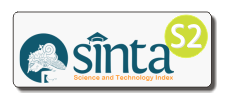Sanctuary in the Midst of Crisis? A Look into Shariah Indices using Multivariate GARCH DCC
DOI:
https://doi.org/10.14421/grieb.2013.012-05Keywords:
Islamic Equity Market, Global Crisis, Multivariate GARCH Dynamic Conditional Correlations, Equity InvestmentsAbstract
Islamic Finance has evolved over the past few decades, and stands at over a trilliondollars today. At the foundations of Islamic finance lay the concept of risk sharing, and the purest forms of it in the modern day finance is equity investments. The evidence of Islamic investors pursing equity investments in reality is thin. Multitude of reasons are attributed to this low participation, mainly revolving around lack of empirical proof of Islamic investments being a reliable and steady return alternative. This study is an attempt to study the volatilities and correlations with the conventional global equity indices utilizing Multivariate GARCH Dynamic Conditional Correlations (MGARCH DCC) method. The findings provide an interesting angleto our study, where there is a significant downwards trend in the correlations during the crisis era. This provides substance to the argument that Islamic investors would experience lesser downside in economic crisis. This study further dwells into the linkage of Islamic indices with global financial indices to study if financial sector exclusion from Islamic indices benefits theinvestors. The findings are positive, with lower correlations and that to reducing in the recent global crisis. Islamic finances core philosophy is equity based investments and this study is a humble attempt to empirically substantiate its benefits.References
Ayub, Muhammad, 2007. Understanding Islamic Finance, England: Wiley.
Engle, R.F., 2002. Dynamic conditional correlation a simple class of multivariate GARCH models, Journal of Business Economics & Statistics 20, 339350.
Hassan, M.K., 2002. Risk, Return and Volatility of Faith-Based Investing: The Case of Dow Jones Islamic Index, Paper in proceedings of the 5th Harvard University Forum on Islamic Finance, University of Harvard, USA.
Hoepner, Andreas G.F. et al., 2010. Islamic Mutual Funds Financial Performance and International Investment Style: Evidence from 20 countries, obtained at http://ssrn.com/abstract=1475037.
Hussein, K.A., 2004. Ethical Investment: Empirical Evidence from FTSE Islamic Index, Islamic Economic Studies, Vol. 12, No. 1, 21-40.
Hussein, K.A., 2005. Islamic Investment: Evidence from Dow Jones and FTSE Indices, Advances in Islamic Economics and Finance, Volume 1, Proceedings of the 6th International Conference on Islamic Economics and Finance, Jakarta, Indonesia.
Iqbal, Z., and Mirakhor, A., 2007. An Introduction to Islamic Finance Theory and Practice, Wiley, Singapore.
Lanza, A., Manera, M. And McAleer, M., 2006. Modeling dynamic conditional correlations in WTI oil forward and futures returns, Finance Research Letters, forthcoming.
Lebo, Matthew J., and Box-Steffensmeier, Janet M., 2008. Dynamic Conditional Correlations in Political Science, American Journal of Political Science, Vol. 52, No. 3, July 2008, 688704.
Pesaran, Bahram, and Pesaran, M. Hashem, 2009. Time Series Econometrics using Microfit 5.0, Oxford University Press, Oxford.
Pesaran, Bahram, and Pesaran, M. Hashem, 2007. Modeling Volatilities and Conditional Correlations in Futures Markets with a Multivariate t Distribution.
Usmani, Muhammad Taqi, 2002. An Introduction to Islamic Finance, Kluwer Law International, The Hague.
Downloads
Published
Issue
Section
License
Global Review of Islamic Economics and Business is licensed under a
Creative Commons Attribution-ShareAlike 4.0 International License



















